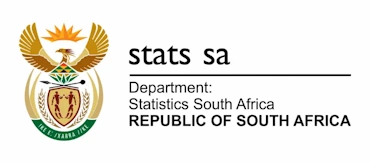Key findings: P9114 - Financial Census of Municipalities, 2022
Acid
test ratio
Municipalities
throughout the country recorded the acid test ratio of 0,84:1 and 0,77:1 for two
financial years ended 30 June 2021 and 30 June 2022 respectively.
Current
ratio
Municipalities
throughout the country recorded the current ratio of 0,89:1 and 0,82:1 in 2021
and 2022 respectively.
Debt-to-income
ratio
Municipalities
on average, had debt-to-income ratios of 0,67:1 and 0,69:1 for the financial
years ended 30 June 2021 and 30 June 2022 respectively.
Debt
ratio
For
the financial years ended 30 June 2021 and 30 June 2022, the municipal debt
ratios were 0,32 and 0,33 respectively.
Municipal
revenue stream
For the municipal year to 30 June 2022, largest
contributor to total municipal revenue of R473 431 million (total revenue less
deficit: see tables in Part 3) was 'government transfers and subsidies received'
(28,1%), followed by 'electricity sales' (27,6%), 'property rates received'
(16,9%), 'water sales' (10,4%), and 'other revenue' (10,1%) (which consists of
fines, penalties and forfeits, licences and permits, other transfers and
subsidies, etc.). 'Sewerage and sanitation charges' (4,2%) and 'refuse removal
charges' (2,8%) were the smallest contributors.
Municipal
expenditure patterns
In
2022, the largest contributor to municipal total operating expenditure of R472
120 million (total expenditure less surplus: see tables in Part 3) was
'employee-related costs' (27,1%), followed by 'electricity purchases' (23,6%),
'operational costs’ (9,7%) (which consists of
travel and subsistence, external audit fees, bank charges and card fees,
communication, wet fuel, hire charges, insurance underwriting, etc.), 'debt
impairment’ (9,3%), ‘contracted services (8,4%), 'depreciation, amortisation
and impairment' (8,3%), and 'water purchases' (5,3%). The smallest contributors
were 'transfers and subsidies paid' (0,8%), 'remuneration of councillors'
(0,9%), 'other expenditure' (1,6%) (which consists of loss on disposal of
assets, operating leases, etc.), 'inventory consumed' (1,9%), and 'finance
costs' (3,0%).

